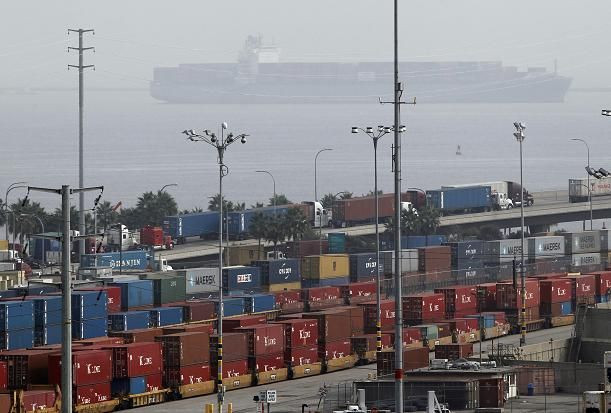Pacific Maritime Association Blames Longshore Workers Union For Stalled Contract Talks, Weekend Work Stoppage

Maritime shippers and U.S. port operators represented by the Pacific Maritime Association (PMA) are blaming the union that represents dock workers for a two-day work stoppage and an impasse in negotiations that cover more than 20,000 workers at 29 West Coast ports. Meanwhile, the International Longshore and Warehouse Union (ILWU), whose members have been working without a contract since June 30, are publicly firing back.
Federal mediators stepped in last month, and last week ILWU President Robert McEllrath said an agreement was very “close.” But key sticking points remain, according to USA Today: The union wants rights to inspect vehicles that move cargo containers once they arrive at ports. It also wants jurisdiction over new jobs created by machines.
In the meantime, shippers have ramped up pressure on the union, both on the docks and in the press. PMA companies suspended operations over the weekend, grinding activity at some of the nation’s busiest ports to a halt. They claimed it was in response to a prior union-induced slowdown.
Then, on Monday, the PMA claimed the union was seeking sweeping new arbitration rights -- the ability to unilaterally fire third-party judges charged with resolving waterfront labor disputes. Under the existing contract, both sides must agree to remove these arbiters.
“The ILWU is essentially seeking the right to fire judges who rule against them,” spokesperson Wade Gates said. “The waterfront arbitration system is an essential check-and-balance against illegal labor actions. It would be reckless to allow a single party to change the rules as the union desires.”
Union spokesperson Craig Merrilees rebuffed that as a “totally inaccurate” claim. He said the arbitration process is part of a “dozen other issues under negotiation.” He also says that federal mediators have asked both parties not to disclose any details of the talks to the press and that “the union intends to honor that request.”
Also, while it is apparently not a major source of dispute, the PMA has drawn attention to longshore workers’ relatively generous compensation. In a press release, the employers’ association said that full-time ILWU workers earn an average of $147,000 a year.
Union officials dispute that number.
Dean McGrath, the president of Tacoma, Washington-based Local 23, said in a video that figure is based on workers who put in more than 2,000 hours a year and includes overtime. He said the average longshoreman earns $82,960.
In the same video, McGrath criticized shippers for damaging the economy.
“If a foreign country or terrorist did harm to the American economy, we couldn’t make flags or lapel pins fast enough as we mobilize to unite against an enemy,” McGrath said. “The question is, how long is the American public and the middle class going to handle this, when [shippers] are doing exactly that?”
No matter who’s at fault, it’s clear the dispute is starting to have an economic impact.
Recent congestion at ports in southern California has led companies to reroute some of their traffic to the East Coast. Domestic meat and poultry producers are losing $30 million a week as a result of the dispute, according to the American Meat Institute. A full-blown lockout or strike could cost upwards of $2.5 billion, depending on the length.
© Copyright IBTimes 2024. All rights reserved.





















